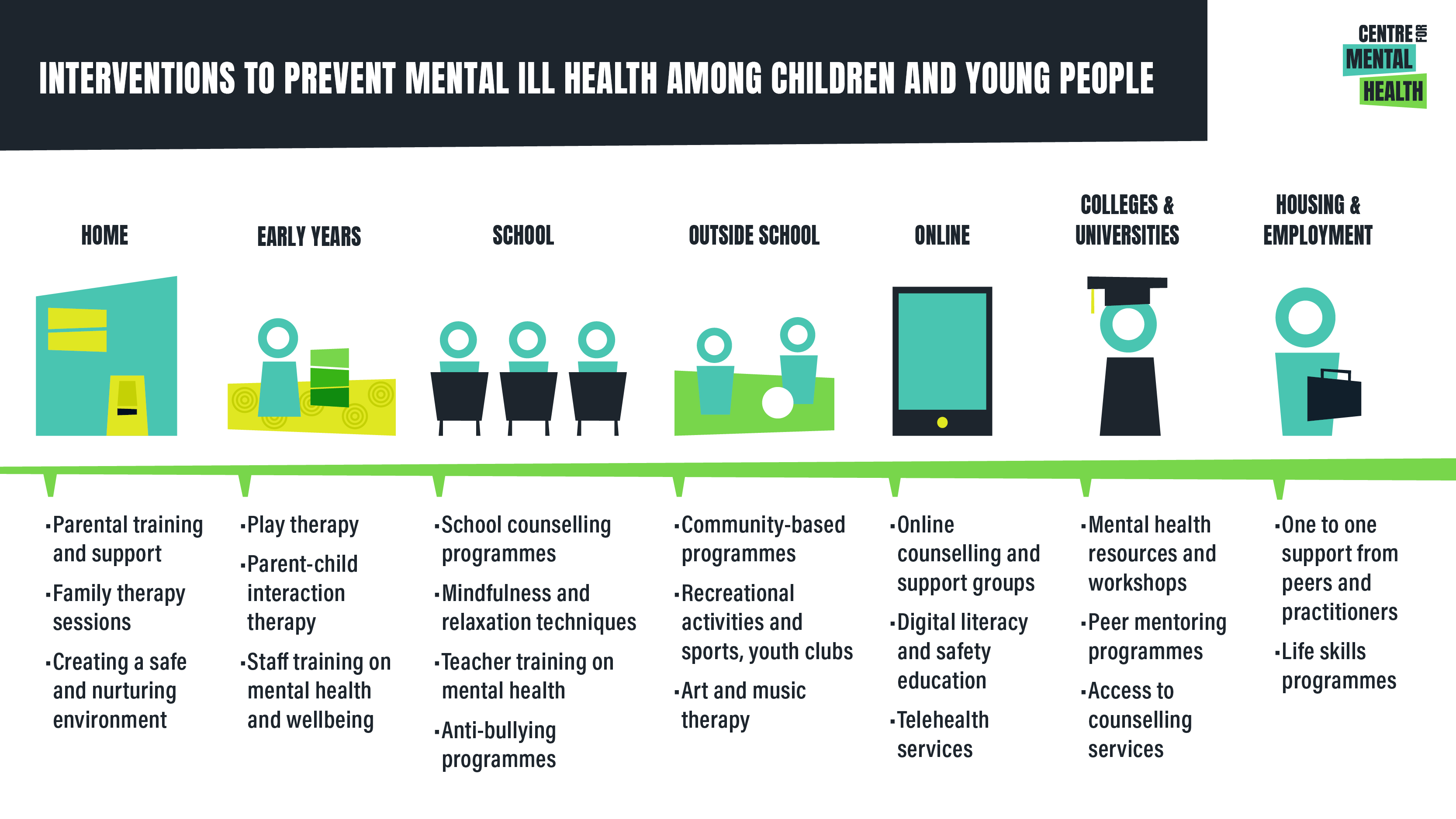Priorities for preventing mental ill health among children and young people
David Woodhead
Mental health problems can cast a long shadow over a child’s life. Addressing them early and providing robust support systems can mitigate the long-term impacts, and help young people build a foundation for a healthier, thriving future.
Children’s mental health is influenced by a range of factors, such as their peer relationships and family dynamics, living conditions and environmental factors, and experiences of racism and discrimination. Invest in childhood explores how the Government can use its powers to prevent mental health difficulties in children, investing in what works, and averting the need for more serious interventions. It identifies six critical areas for immediate action, from the perinatal period and early years, to schools and colleges, and through to entering the job market.
The report calls on the Government to invest in childhood and give every young person the best chance of having good mental health. The evidence-based actions it identifies are far less costly than allowing young people’s needs to escalate until they require specialist care, or face financial adversity and lifelong disadvantage.
With rates of mental health problems among children and young people seeing a significant increase in the last decade, the Government must act now to turn the tide:
- Take steps to tackle the social determinants of children and young people’s mental health
- Improve mental health support for mothers during the perinatal period
- Invest in evidence-based parenting programmes
- Expand the health visitor and school nursing workforce
- Support early years education settings, schools, colleges and universities to adopt a whole education approach to mental health
- Establish an open access mental health hub in every community in England
- Create a nationwide programme to invest in community-led mental health promotion and mental illness prevention activity.

We would like to extend our thanks to the Bowland Charitable Trust, which generously funded this work.






